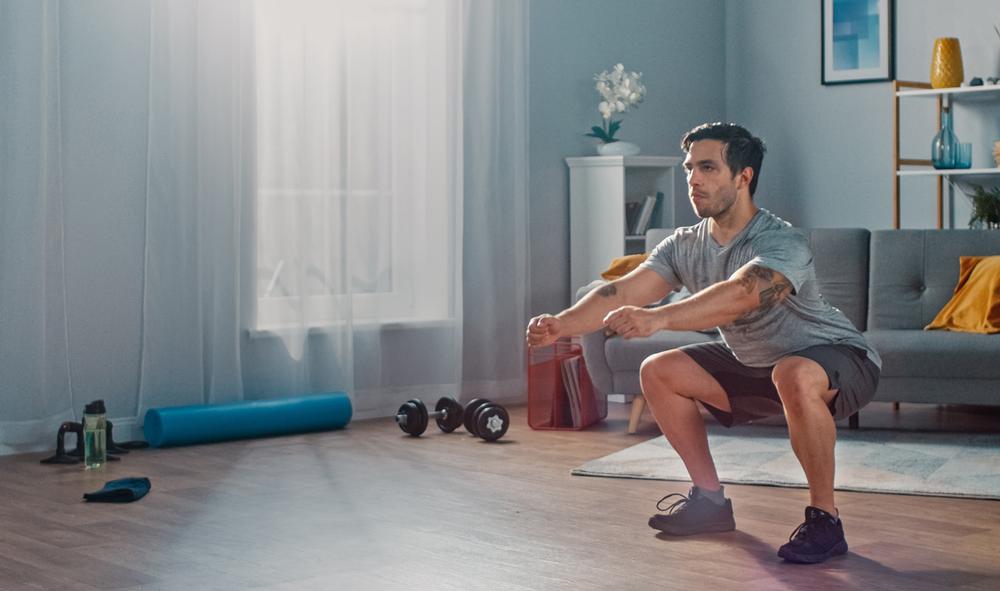Although there were winners and losers, our research indicated the lockdowns has a negative impact on lifestyle behaviours. The main problem will be if some of these negative changes turn into enduring habits once normality resumes,” says Dr Felix Naughton, lead researcher on the University of East Anglia’s C‐19 health behaviour and well‐being daily tracker study. “Just a small negative change in lifestyle behaviour would result in a later jump in prevalence of chronic disease and death when converted to a national scale.”
The study kicked off in April 2020, just after the first lockdown was announced. A cohort of more than 1000 UK-based residents were assessed for 84 days, via a daily survey asking about symptoms, mood, wellbeing, nutrition, physical activity, sleep and substance use. This was backed up with qualitative interviews with a sample of the group. Follow up surveys were conducted at three and six months and 12 months.
As the UK population struggled to adapt to life under lockdown, working at home, being furloughed, or coping with the stress of being a key worker, as well as dealing with the ever-present anxiety of the virus, and sometimes homeschooling, the survey suggested unhealthy habits and negative coping strategies were more prevalent than a detox and a jog. Worsening unhealthy behaviours were most associated with being younger, female and having a higher BMI.
“On average, people’s health behaviour worsened in the early stages of the pandemic,” says Naughton. “And even short term unhealthy habits can impact the immune response, which is not what you want in a pandemic.”
Reaching for the wine
Overall, people drank more alcohol. Among the general population the more affluent socio-economic groups drink more frequently, but the lower groups have a tendency to binge drink. The research suggested a general uptick in drinking to cope.
“There was a gender difference in alcohol consumption,” explains Naughton. “Men drank more in each episode, but women were drinking more frequently, which some studies suggest is connected to pandemic related stress.
“Being a key worker, older and male was associated with a greater number of drinks consumed on a typical day’s drinking and consuming alcohol on a greater number of days was associated with being older and female.”
Longer term, Naughton thinks this could lead to people drinking more: “We take our behavioural cues from our environment,” he says. “So if people didn’t used to drink at home but have now become accustomed to it, they might carry on doing so.”
Skipping the daily exercise
The survey also revealed an average 20 per cent reduction in the days where participants did more than 30 minutes of moderate to vigorous physical activity. “This is quite a big drop,” says Naughton. “Younger people showed the biggest reduction in physical exercise, possibly because they think less long term than older people about how exercise can impact their health.
“Another group which revealed an increase in unhealthy behaviours was people who are overweight or obese. We can only speculate that much of their routine physical activity came from moving about in their everyday lives and they had fewer habits to purposefully exercise.”
With people being housebound, the physical activity they would usually get as part of their daily routine was stripped away: for example walking or cycling as part of their commute or walking around their workplace. Under lockdown, people had to make a concerted effort to exercise and if they are not in the habit of doing so, or don’t live in an environment which is conducive to exercise, then they were more likely to become inactive.
The study showed people who had health conditions which made them more at risk of developing a bad response to COVID displayed some of the biggest reductions in physical activity. Naughton attributes this to shielding, making so many housebound.
“There are many factors which influence how physically active people are,” he says. “But shielding did prove to be life limiting. One person suddenly showed a marked change in behaviour and their activity levels greatly increased. When we questioned them it was because they had become fed up with shielding and decided to go back to their allotment.”
Cutting down on vegetables
Relative to pre-pandemic levels, participants ate almost one portion of fruit and vegetables less per day. Although that might not sound drastic, Naughton points out that if this was scaled up across the nation it would equate to a 5 per cent increase in premature death from cardiovascular disease.
The research showed that people with a high BMI also had a worse diet and were more likely to snack than those with a low BMI.
“This may reflect that people with a higher BMI are more likely to comfort eat and have a tendency to use high sugar snacks as a coping strategy,” says Naughton.
Stepping up strength training
Amongst the gloomy results, there were also some glimpses of positive behaviour change, including a sizeable increase in strength training. “We saw a 15 per cent increase in strength training, which was positive and suggests people might be finding different ways to engage with physical activity in the home,” says Naughton.
“Also we expected to see an increase in high sugar snacks, but there was no overall change in that respect. Some people increased and some decreased, so on average there was no change.”
Despite the well-documented stress of homeschooling, fortunately there was no indication that it drove people to day drink: “We looked at whether having parental responsibility during working hours changed health behaviours during lockdown, but there was no effect.”
The team are now working on analysing the results of the follow-up surveys, but so far it would appear the initial changes have largely persisted, especially because of the prolonged third lockdown in the winter months, when morale dipped. “People were fed up with having their lives on hold, working from home or not working at all and were finding it hard to motivate themselves,” says Naughton.
As we edge towards normality again, hopefully for good, there is the hope that people will find they are able to improve their health. “This would have an important bearing on our national ascent out of the pandemic,” says Naughton. “Healthy behaviours lead to a better immune response, which improves the ability to fight COVID, makes the vaccine more effective as well as contributing to good mental health.”



























































